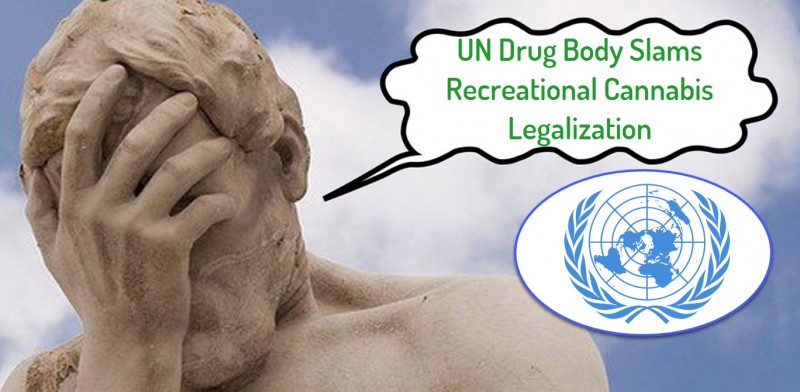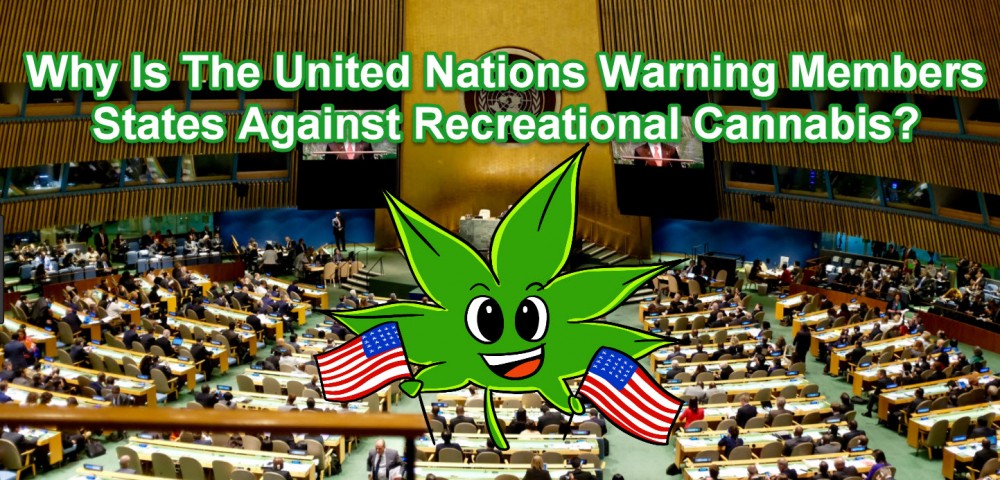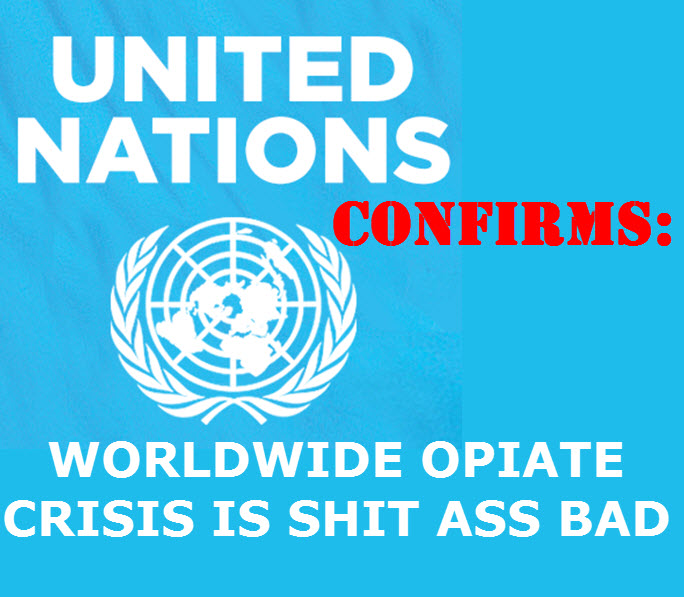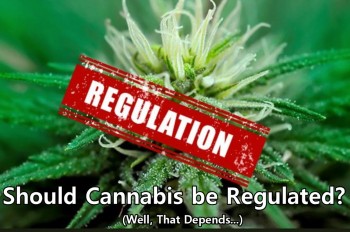UN Drug Body Slams Recreational Cannabis Legalization
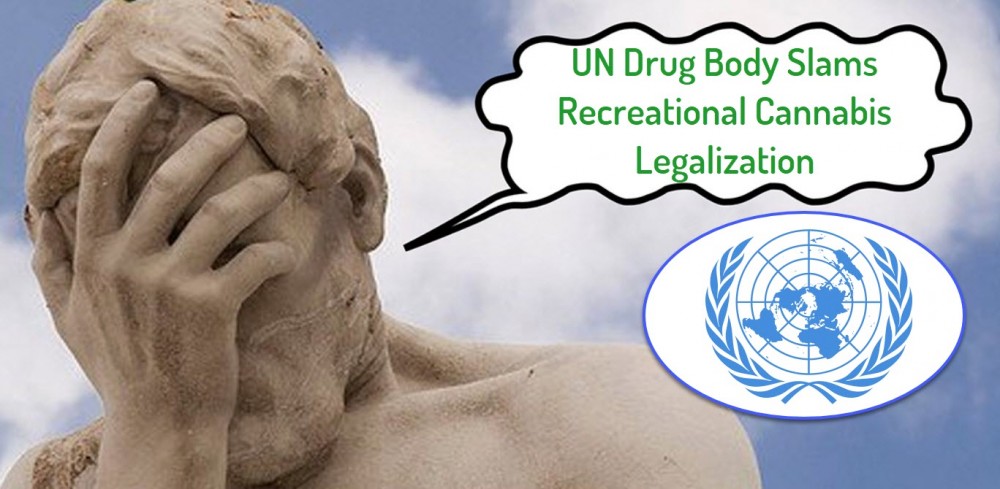
International drug reform is the one thing that can make a huge impact on cannabis legalization beyond the shores of the United States. Yet the drug treaties we have been mandated to follow are extremely archaic and backwards.
A month following the World Health Organization’s recommendation to reschedule cannabis, the United Nations International Narcotics Control Board (INCB) says recreational cannabis as well as some medical marijuana programs are “contrary to the international drug control treaties.” The INCB, which is the “independent and quasi-judicial monitoring body for the implementation of the United Nations international drug control conventions” is tasked with making recommendations for member states to comply with drug treaties, then monitor how well these have been implemented.
But INCB president Dr. Viroj Sumyai slammed recreational and medical cannabis policies in the foreword of their 2018 report: “The legalization of the use of cannabis for nonmedical purposes in some countries represents a challenge to the universal implementation of the treaties, a challenge to public health and well-being, particularly among young people, and a challenge to the parties to the treaties.”
Sumyai also condemned Canada and others for “poorly regulated medical cannabis programs” which “may have contributed to the legalization of nonmedical cannabis use.” The report says that growing cannabis at home even if it’s intended to be used as medicine is a concern because they claim that doing so is risky because it tempts people to use it as a recreational drug.
Additionally, the INCB says that smoking is not “a medically accepted way to obtain standardized doses of cannabinoids”. They also made warnings about using products that aren’t transparent about the cannabinoids used and how they work, the fact that there is still no identified best way to consume cannabis, and the omission of possible side effects in cannabis programs. “When used in these ways, patients may confuse the acute euphoric effects of cannabinoids for longer-term medicinal effectiveness,” says the INCB.
INCB Blasts US and Canada
Much of the report was focused on the issues surrounding the medical cannabis programs of both the US and Canada. Even though both countries have programs that are far from perfect, they still do help a lot of patients in need.
The INCB mentioned how loose programs are, when allowing patients to buy their cannabis from “commercial outlets…. Under minimal supervision.”
“Most medical cannabis programmes in the United States do not comply with the requirements of the international drug control treaties or United States national law. The cannabis sold in dispensaries may be illicitly produced and sold. There may be substantial diversion of cannabis products intended for medical use to nonmedical use. There is often little or no scientific evidence to support the effectiveness of many of the purported medical uses of cannabis and there is very little medical supervision of these ‘medical’ uses of cannabis.”
The fact that Canada and some states in the US allow cannabis and cannabis-derived products to be used non-medically is a huge issue with the INCB. The absence of cannabis production and supply regulation, as well as the fact that there is no way cannabis can be guaranteed to be of good quality and taken under medical supervision, is also a concern.
Recreational Cannabis Still Violates International Law
The INCB has made it clear that “legalization of nonmedical use of cannabis contravenes the international drug control treaties.” Any effort to challenge the treaties “may also encourage other states… to follow their example and use it as justification for doing so.”
Since 2013, the INCB has constantly been on the case of Uruguay and the United States for violating international drug law after they both legalized recreational use. In 2017’s annual report, the INCB also sent a warning to Canada about their Bill C-45, which legalized cannabis for recreational use throughout the country.
Should Member States Stop Their Progress With Cannabis Legalization?
There seems to be no real reason that UN member states should halt their individual progress with cannabis legalization. Those who already have are reaping the benefits of legalization and ending prohibition, including taxes from cannabis sales, a decrease in crime, and a drop in youth use.
Follow Canada and Uruguay’s lead, by all means, because if we do wait around for the WHO to reschedule cannabis – well, that might take forever.
OTHER STORIES YOU MAY ENJOY..
THE UN WARNS MEMBER STATES ABOUT MARIJUANA, CLICK HERE.
OR..
THE UN ON THE OPIOID CRISIS, ITS' BAD, READ THIS, CLICK HERE.

